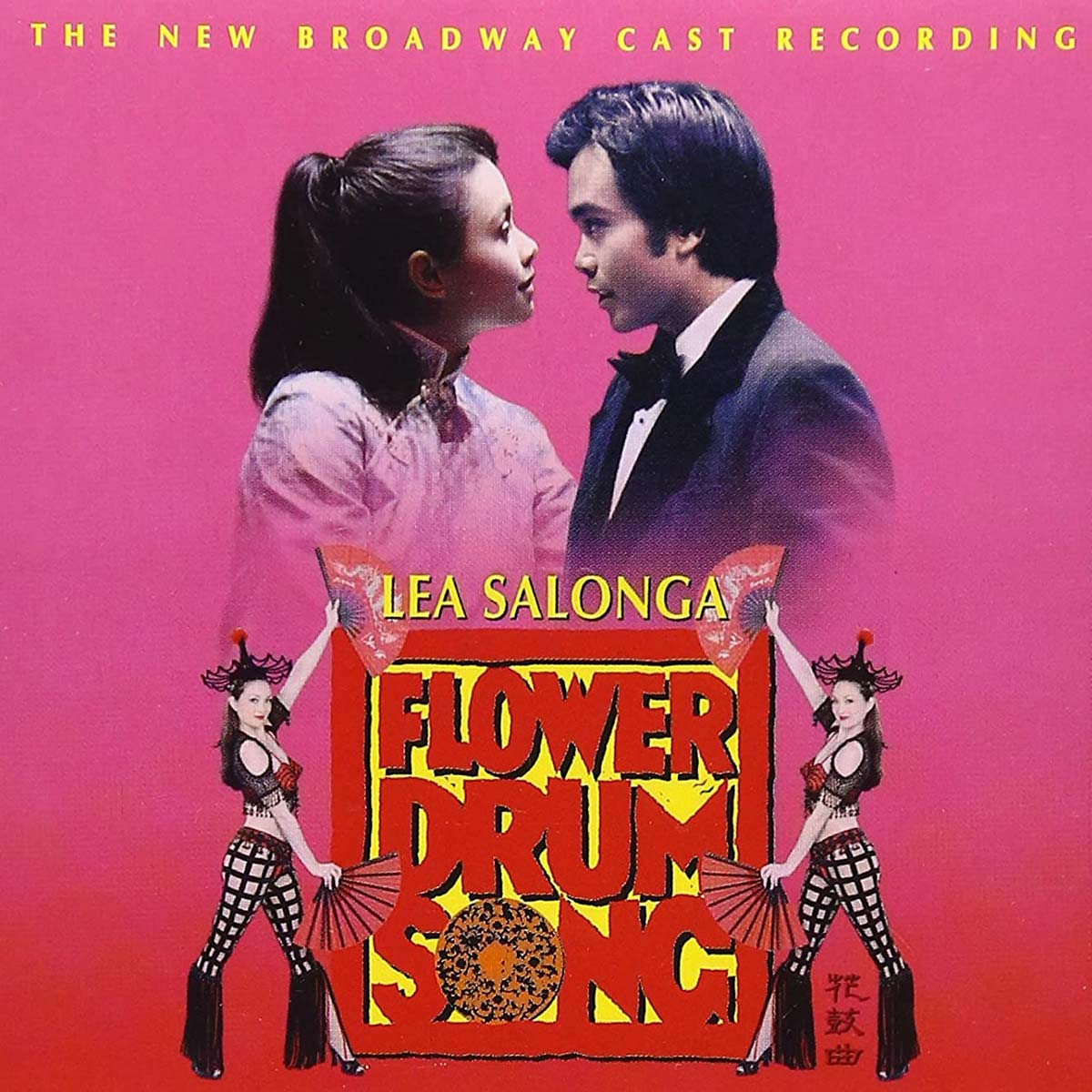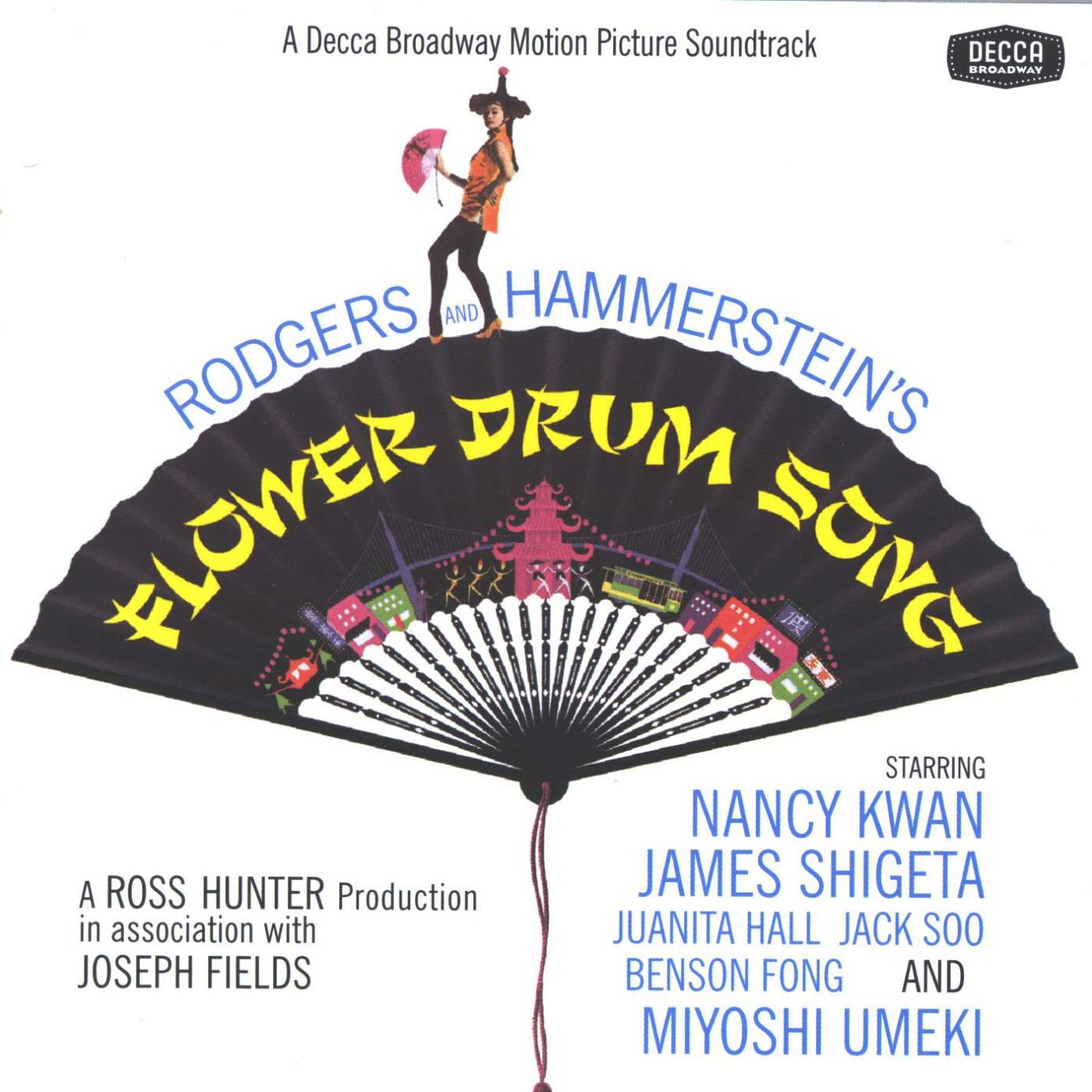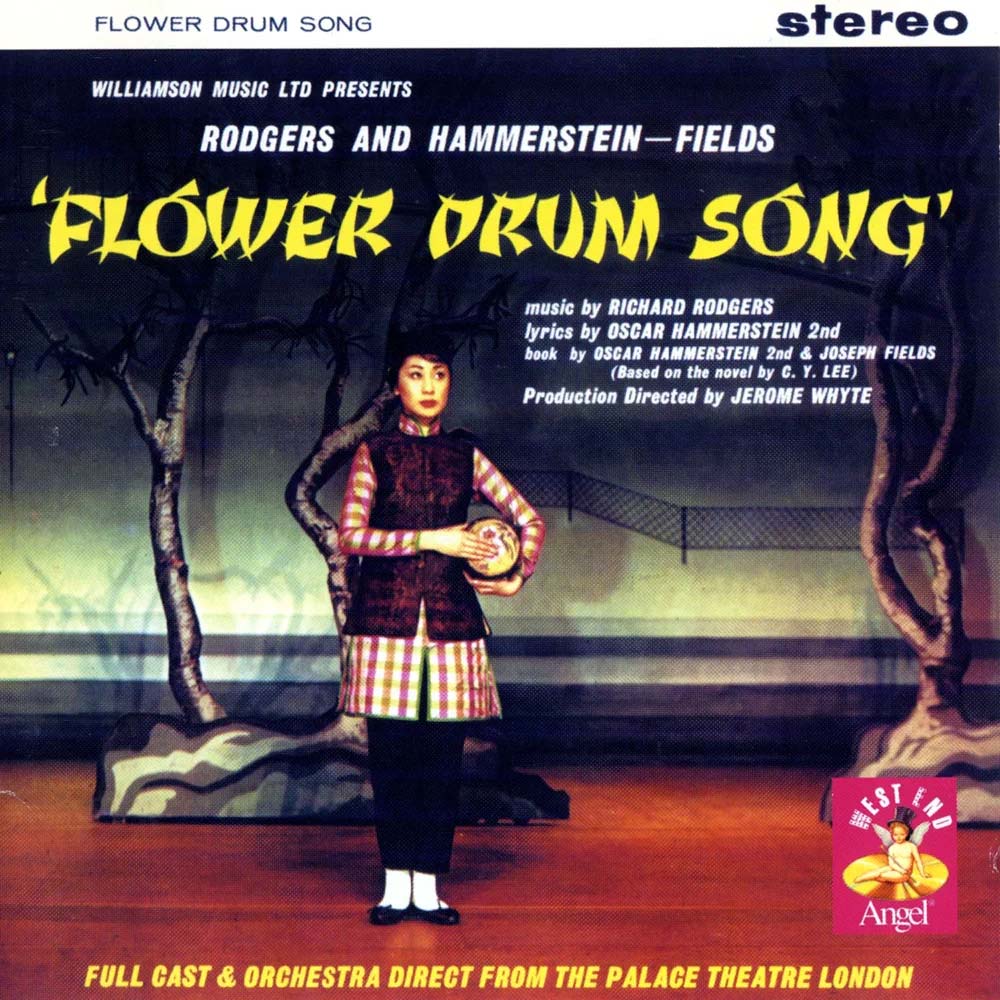Based on C.Y. Lee’s 1957 novel, Flower Drum Song played its first performance at the St. James Theatre on December 1, 1958. The production made history: It was the first time a Broadway cast featured a majority of Asian-American actors, singers and dancers. Following over a thousand performances on Broadway and the West End, Universal Pictures released the film adaptation on November … Read More
2002 Broadway Revival
In a daring 2002 revival, Flower Drum Song made its first return to Broadway in over 40 years, in a sumptuous production starring Lea Salonga. The bold new imagining featured a brand-new book adapted from the original libretto by the widely acclaimed Chinese American playwright David Henry-Hwang. The Broadway revival’s Grammy-nominated cast album features stunning, fresh orchestrations by Don Sebesky, … Read More
1961 Motion Picture
Shortly after the original motion picture premiered in New York City, the film’s soundtrack was released with new, rousing orchestrations by Alfred Newman and Ken Darby. In this era of movie musicals, screen actors were often dubbed with professional singers, which is why the songs were credited to the characters rather than the actors. On this soundtrack, American opera star … Read More
1960 West End Premiere
While the original Broadway production continued its run, Rodgers & Hammerstein’s Flower Drum Song made its West End Premiere at London’s Palace Theatre on March 24, 1960, where it would run 464 performances, through spring of the following year. For its debut across the pond, Jerome Whyte replicated Gene Kelly’s original direction and Robert Lowe stepped in as conductor and … Read More
The Other Generation
Part of the original score of Flower Drum Song, “The Other Generation” was not included in the 2002 Broadway revival version. In this charming number lampooning the generation gap, Liang and Wang complain about their younger family members.
Like a God
Mei-Li returns, telling Ta that “the love of the flower boat maiden does not turn the scholar into a god. He has always been a god.” Acknowledging and declaring his love for Mei Li, Ta finally recognizes his own strength.
Love, Look Away
Seeing no serious romantic interest from Ta, Mei Lin has decided to return to China and marry Chao. Standing on a dock, surrounded by other Chinese men and women preparing to sail home, she tells herself she’s better off without love.
Don’t Marry Me
Wang (now known as Sammy Fong) and Rita Liang share a moment at a Chinese restaurant. Despite their growing attraction, they warn each other not to get too close.
Chop Suey
Onstage at Club Chop Suey, Wang – in his stage persona of “Sammy Fong” – appears in a new act. Dressed as a chef, he performs an outlandish nightclub number featuring dancing chopsticks and chorus girls in take-out cartons. Ta, appalled by the display, feels his father has traded dignity for financial success.
Gliding Through My Memoree
Harvard, a young man who has agreed to make all the costumes in exchange for a features spot, just isn’t cutting it in his sailor number. Wang assumes the role himself and expertly leads the company with charm and finesse.
Fan Tan Fannie
At the grand opening of the new Club Chop Suey, Linda, inspired by Mei-Li’s idea of using fans, kicks things off with a smoky, sexy number.
Sunday
When Mei Li shares her inability to grasp American dating habits, Ta playfully assures her that she’s the kind of girl whose appeal is much simpler; someday a special guy will want to spend an idyllic Sunday with her.
Grant Avenue
Madame Rita Liang intends to transform the Golden Pearl Theater into the hottest nightspot in Chinatown. She inspires everyone with a grand vision of Grant Avenue, a bustling and successful place where Western tourists can see some “exotic” – but palatable – Chinese culture.
You Are Beautiful
When Ta calls the story of the Flower Boat Maiden “corny,” Mei-Li disagrees, defending it as a beautiful tale in which the maiden makes the humble scholar realize he is a god.
I Enjoy Being a Girl
Encouraging Mei Lin to pursue a relationship with Ta, Linda extols the power of women in “the land of opportunity.” Joined by a chorus of fawning men, Linda continues her celebration of femininity in a showstopping number at the Golden Pearl’s Nightclub Night.
- Page 1 of 2
- 1
- 2



